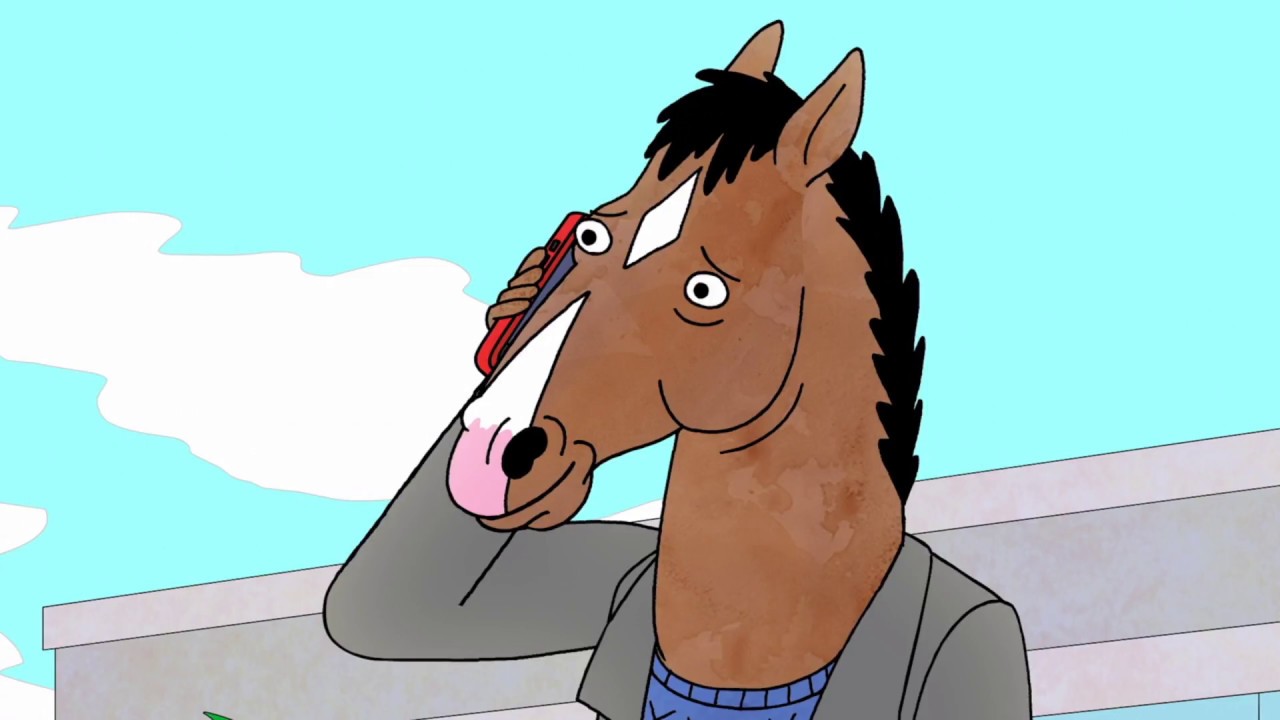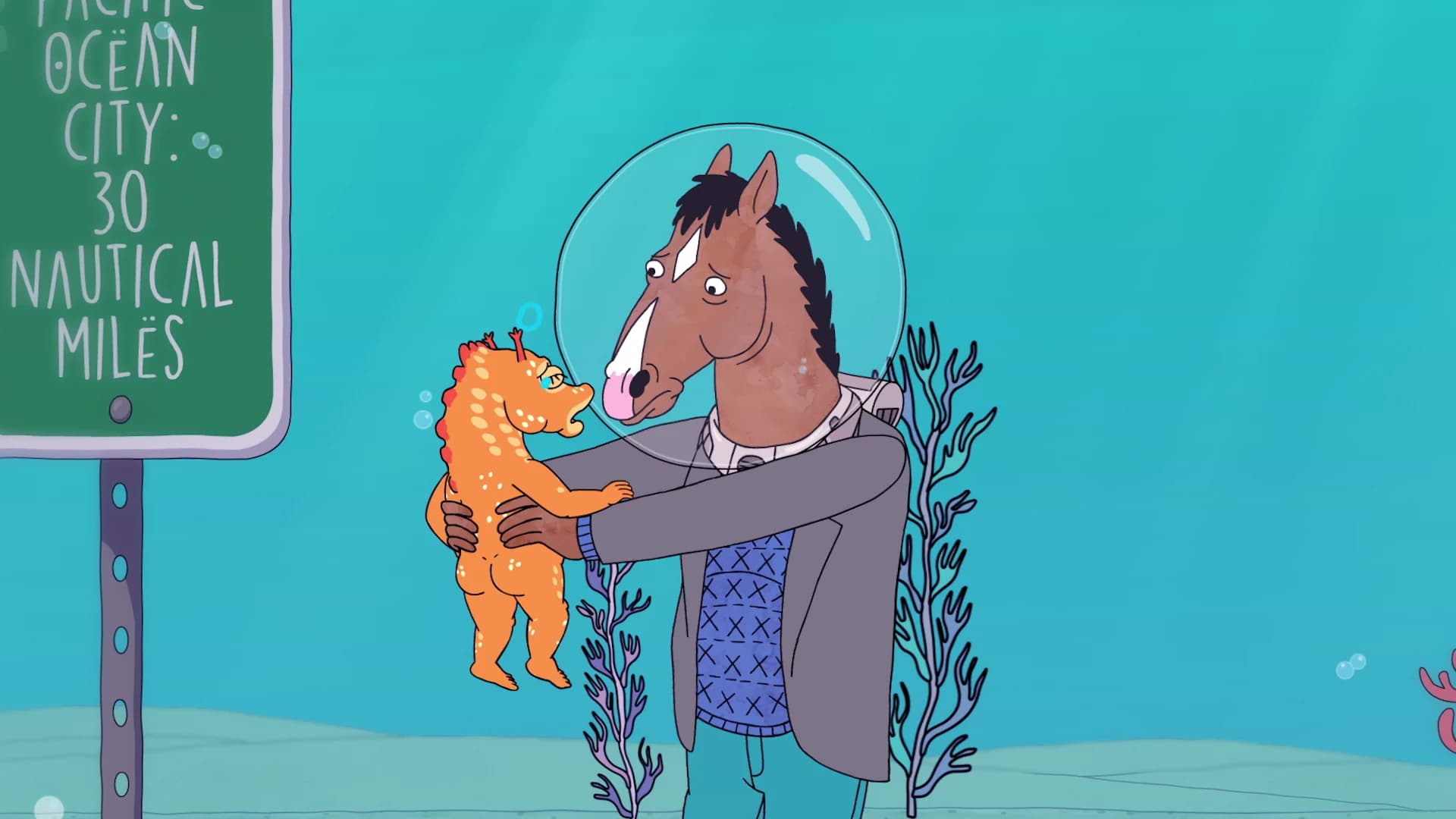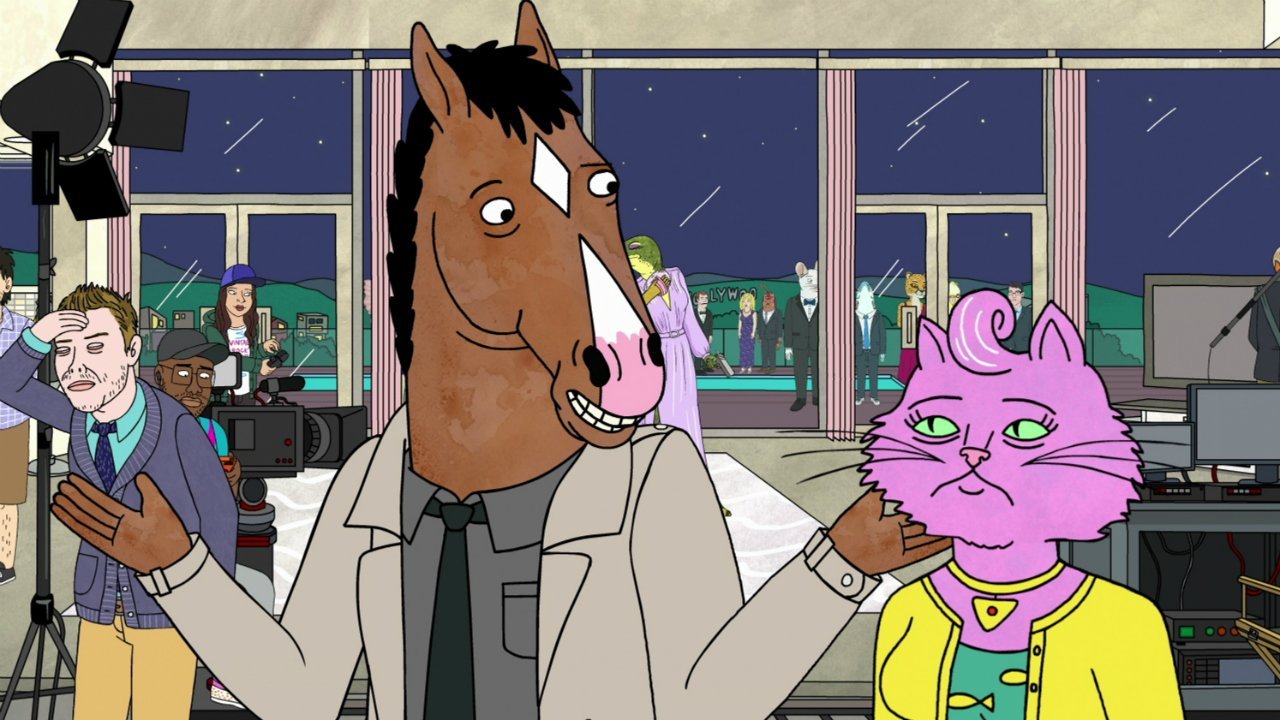Think BoJack Horseman is just 'the sad horse show'? It’s secretly the most grown-up series around
BoJack Horseman isn’t the star of his own show anymore – and that’s changed things for the better

BoJack Horseman is one of the best, most complex shows on TV... but it wasn’t always that way. What began as typical TV fare – a protagonist plying himself with drugs, booze, and women to mildly humorous effect – eventually transformed into a show which is brave and daring enough to comment on depression, dementia, asexuality, and so much more. It didn’t become that show overnight though. In fact, it took a crucial episode (and many moments in-between) for the show to transform into a complete rejection of its original tired TV trope and into its current mature self. BoJack Horseman can, finally, stand on its own two (should that be four?) feet – and here’s how it paved the way for one of the most remarkable telly transformations in recent years…
BoJack Horseman’s first season largely centred on Will Arnett’s titular character doing his level best to hurt himself and others through barbed one-liners, a lack of general care, and alcohol. The show’s skewed mirror, where we aren’t supposed to cheer for the anti-hero, hadn’t yet reflected upon us. Instead, we got comedy and some cheap thrills. We got debauchery. We got terrible, terrible animal puns and wordplay. We got unsurprisingly plots – such as BoJack drunkenly stealing part of the Hollywood sign – that occasionally grazed the surface of the alcoholic ex-actor haunted by his past successes, but didn’t manage to quite open him up. Watching it was like reliving your teenage years; things are all bright-eyed and ballsy, but fun displaced introspection one too many times in those first thirteen episodes.
Simply put, it was all because of the overawing presence of BoJack; all at once magnetic and miserable to watch. And then things abruptly changed and, this time, there wasn’t anyone around to listen to BoJack.
Sorry seems to be the hardest word

BoJack Horseman season 3 is a watershed moment for the show – emphasis on the water. The fourth episode of the season, Fish Out of Water, completely rejects the notion that we have to listen to BoJack anymore. Indeed, he is both figuratively and literally silenced throughout the episode, with the narrative instead opting to present BoJack’s loneliness through just that: pure and utter isolation. The seawater and the silence proved to be the show’s (and BoJack’s) cathartic cleansing.
AV Club’s review (what is this, a crossover episode?) described it as “nothing short of a masterpiece, a culmination of both BoJack Horseman’s unique animation style and its views on isolation and connection,” and it’s easy to see why. The whole episode is about a man (okay, horse-man) who wants something, sees what he wants, chases it, and ends up with nothing. It is all of BoJack rolled into one 30-minute episode and, get this, it ends with a handwritten apology from BoJack himself. The experience he went through – no one to talk to and no one to hear him – means he finally gains some perspective and learns to respect others. His sombre sorry may not have reached anyone but himself, yet it didn’t matter. The deep-rooted damage and, 28-and-a-half minutes later, the reparations were done.
This coupled with another key fracture later in the season when ever-present best friend Todd decides he’s had enough of BoJack’s bullshit and moves out, reads as a show that’s finally let itself grow up. We suddenly discover that we didn’t want to, or indeed have to, listen to BoJack Horseman anymore. For us and the show, it was utterly liberating. While the creative team probably weren’t aware of it at the time, the use of BoJack’s silencing proved particularly prescient: the show could now move onto bigger and better things.
Bringing all the latest movie news, features, and reviews to your inbox
BoJack to the future

So, what’s changed? For one thing, BoJack Horseman is a bit-part player in his own show now. With the teething issues of a turbulent, often immature, opening act having been and gone, we can press on with the more meaty stuff. Over the past few seasons, the show has broadened its horizons by pushing BoJack to one side so we can concentrate on weightier issues instead of glamorising them. BoJack, instead of being the star of the show, is just one of many broken characters within the series.
BoJack Horseman has become a shared study in grief – one that we can all learn from and relate to. Todd has come out as asexual; we discover Princess Caroline has had several miscarriages; we are privy to BoJack’s mother and her struggles with dementia, and, of course, BoJack’s depression rears its ugly head throughout, but this time in the belief that the washed-out star can find a semblance of satisfaction in his life. Where once he (and the show) meandered, there is genuine development.
The change is obvious and will hopefully continue with the new season, which hits Netflix today (September 14). The BoJack Horseman season 5 trailer plays on BoJack fading away from centre stage and sees him repeating the same lines over and over again, while more interesting things are going on around him. This time, though, things are abundantly different all because of the Fish Out of Water apology. The show has opened itself up to confronting serious issues without falling back into its own self-destructive cycle of focusing on the anti-hero. Everyone is looking forward and removing the main character from the heart of things, may have made BoJack Horseman this year’s must-see show. And that’s not too shabby for a series that kicked things off with a joke about a penguin running a publishing house.
BoJack Horseman season 5 is new on Netflix, but make sure you don't miss out on any more of the new TV shows coming your way in 2018.
I'm the Senior Entertainment Writer here at GamesRadar+, focusing on news, features, and interviews with some of the biggest names in film and TV. On-site, you'll find me marveling at Marvel and providing analysis and room temperature takes on the newest films, Star Wars and, of course, anime. Outside of GR, I love getting lost in a good 100-hour JRPG, Warzone, and kicking back on the (virtual) field with Football Manager. My work has also been featured in OPM, FourFourTwo, and Game Revolution.



